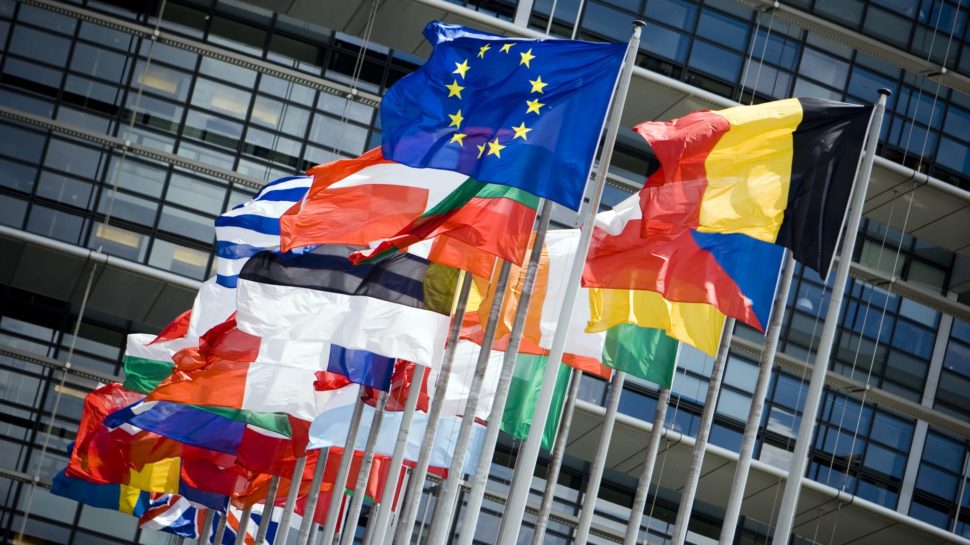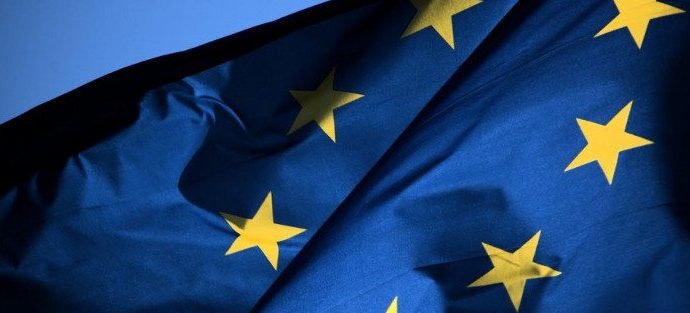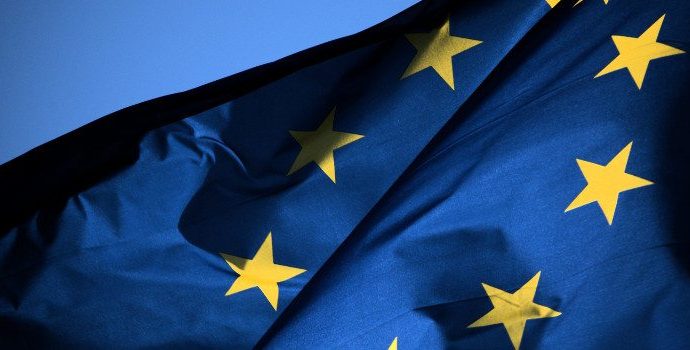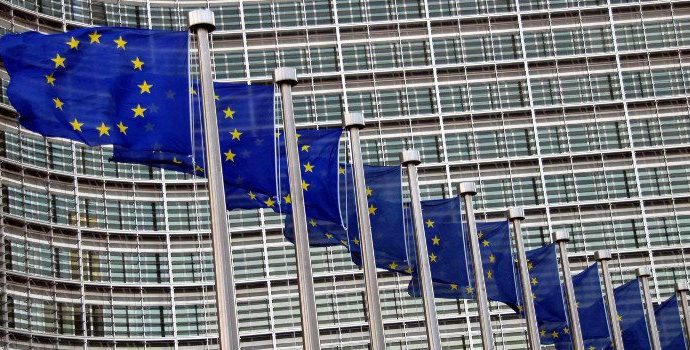European Commission Daily News 28th January

Biodiversity: Commission guidelines for new protected areas that will guide Europe’s nature on the path to recovery by 2030
The Commission today published guidance on the identification and designation of new protected natural areas in the EU, as well as on the management of existing and future protected areas. The EU Biodiversity Strategy to 2030 – a key initiative of the European Green Deal– aims to put Europe’s biodiversity on a path to recovery by 2030. To help achieve this, the strategy aims to protect at least 30% of EU land and seas by to 2030. These EU targets are consistent with the global targets proposed at the 15th Conference of the Parties (COP15) of the United Nations Convention on Biological Diversity. A third of this surface of the EU, very important areas in terms of biodiversity and climate, should be subject to strict protection, both on land and at sea, according to the EU strategy in favor of biodiversity. The guidelines adopted today will help Member States achieve these goals and set up a coherent transnational network. Frans Timmermans, Executive Vice-President in charge of the European Green Deal, said: “In order to steer our economy on a truly sustainable path, we need to give nature the space it needs to recover. The expansion of protected areas in the European Union, both land and sea, is essential to providing this space. Commissioner for Environment, Oceans and Fisheries, Virginijus Sinkevičius , added:“We depend on nature and we must preserve it. Natura 2000 forms the backbone of a trans-European nature network, however further efforts are needed at national level to complete it. Our guidance gives Member States tools to help them identify, designate and manage additional protected areas. We will continue to work together to put European nature on the path to recovery by 2030, for the benefit of our planet and our economy. »The current network of legally protected areas is not extensive enough to safeguard biodiversity. Additional designations should either contribute to completing the Natura 2000 network or fall under national protection regimes. The 2030 targets apply across the EU and each Member State will designate areas for protection based on objective ecological criteria and its own quantity and quality of biodiversity. The ecological and economic benefits go hand in hand since the ecosystem services of the existing Natura 2000 network alone (food, water and air filtration, resilience to disasters, etc.) are estimated at 300 billion. The guidance guide was developed in collaboration with the European Environment Agency after year-long discussions with national experts and stakeholder organisations. More information is available here .
Eurostat: Commission adopts amendment to energy statistics to further support the European Green Deal
Today, the European Commission has adopted the most encompassing amendment of the energy statistics regulation ever conducted. The aim is to support even further the European Green Deal. This amendment, which will enter into force in February, will provide statistics to monitor a number of policy initiatives to decarbonise the European economy, including the Energy Union and the Fit for 55 package, as well as the Hydrogen Strategy and the Initiative on Batteries. The new statistics will be first available in 2022. Commissioner for Economy, Paolo Gentiloni, said: “Today’s amendment to the energy statistics regulation marks a milestone on the path to a credible and evidence-based transition towards a climate-neutral economy. With this legal act, we set the pace for energy statistics worldwide, stay ahead of policy developments and already incorporate data needs from the Fit for 55 package and other important policy initiatives, in line with the Commission’s priorities.” With this amendment, the Commission will publish new and more detailed high-quality data on (i) new energy carriers (such as hydrogen), (ii) large-scale batteries, (iii) additional renewable fuels (as an example, heat pumps and solar PV production in buildings), (iv) the non-energy use of renewables (including bio-lubricants or bio-asphalt), (v) detailed breakdown of final energy consumption in the services sector (including data centres) and in transport activities, and (vi) specific final energy consumption in agriculture and in forestry. In addition, annual data will become available one month earlier (in October of the following year, instead of November). New statistical requirements on energy consumption, renewable energy, electricity, CHP (combined heat and power) and decentralised production will help monitoring the current Renewable Energy Directive, the Energy Efficiency Directive, the Energy Performance of Buildings Directive, the Governance of the Energy Union and Climate Action and the Resilience and Recovery Facility, which foresees sizeable funding for energy efficiency and renewable energy in buildings. Other modifications support the Common Agriculture Policy and the digital transition. More information is available online.
State aid: Commission approves the renewal of an Italian scheme to support companies active in agriculture, forestry, fishery, aquaculture and related sectors, including €500 million budget increase, in the context of the coronavirus pandemic
The European Commission has found the renewal of an Italian scheme to support companies active in agriculture, forestry, fishery, aquaculture and other related sectors, including €500 million budget increase, to be in line with the State aid Temporary Framework. The Commission approved the original scheme on 15 July 2020 (SA.57947). Under the scheme, the aid takes the form of direct grants, repayable advances, tax and payment advantages, reduction or cancellation of the payment of social security and welfare contributions, debt write-off and other payment facilities. Public support will also continue to be granted in the form of support for uncovered fixed costs. The purpose of the scheme is to address the liquidity needs of these companies and to help them continue their activities during and after the outbreak. The Commission found that the renewal of the Italian scheme is in line with the conditions set out in the Temporary Framework as amended on 18 November 2021. In particular, when it comes to support in the form of limited amounts of aid, the support will not exceed €290,000 per company active in the primary production of agriculture products, €345,000 per company active in the fishery and aquaculture sector, and €2.3 million per company active in other sectors. When it comes to support for uncovered fixed costs, the aid will not exceed €12 million per beneficiary. Under both measures, the aid will be granted no later than 30 June 2022.Therefore, the Commission concluded that the scheme continues to be necessary, appropriate and proportionate to remedy a serious disturbance in the economy of a Member State, in line with Article 107(3)(b) TFEU and the conditions set out in the Temporary Framework. On this basis, the Commission approved the measures under EU State aid rules. More information on the Temporary Framework and other actions taken by the Commission to address the economic impact of the coronavirus pandemic can be found3 million per company active in other sectors. When it comes to support for uncovered fixed costs, the aid will not exceed €12 million per beneficiary. Under both measures, the aid will be granted no later than 30 June 2022.Therefore, the Commission concluded that the scheme continues to be necessary, appropriate and proportionate to remedy a serious disturbance in the economy of a Member State, in line with Article 107(3)(b) TFEU and the conditions set out in the Temporary Framework. On this basis, the Commission approved the measures under EU State aid rules. More information on the Temporary Framework and other actions taken by the Commission to address the economic impact of the coronavirus pandemic can be found3 million per company active in other sectors. When it comes to support for uncovered fixed costs, the aid will not exceed €12 million per beneficiary. Under both measures, the aid will be granted no later than 30 June 2022.Therefore, the Commission concluded that the scheme continues to be necessary, appropriate and proportionate to remedy a serious disturbance in the economy of a Member State, in line with Article 107(3)(b) TFEU and the conditions set out in the Temporary Framework. On this basis, the Commission approved the measures under EU State aid rules. More information on the Temporary Framework and other actions taken by the Commission to address the economic impact of the coronavirus pandemic can be foundthe aid will not exceed €12 million per beneficiary. Under both measures, the aid will be granted no later than 30 June 2022.Therefore, the Commission concluded that the scheme continues to be necessary, appropriate and proportionate to remedy a serious disturbance in the economy of a Member State, in line with Article 107(3)(b) TFEU and the conditions set out in the Temporary Framework. On this basis, the Commission approved the measures under EU State aid rules. More information on the Temporary Framework and other actions taken by the Commission to address the economic impact of the coronavirus pandemic can be foundthe aid will not exceed €12 million per beneficiary. Under both measures, the aid will be granted no later than 30 June 2022.Therefore, the Commission concluded that the scheme continues to be necessary, appropriate and proportionate to remedy a serious disturbance in the economy of a Member State, in line with Article 107(3)(b) TFEU and the conditions set out in the Temporary Framework. On this basis, the Commission approved the measures under EU State aid rules. More information on the Temporary Framework and other actions taken by the Commission to address the economic impact of the coronavirus pandemic can be foundappropriate and proportionate to remedy a serious disturbance in the economy of a Member State, in line with Article 107(3)(b) TFEU and the conditions set out in the Temporary Framework. On this basis, the Commission approved the measures under EU State aid rules. More information on the Temporary Framework and other actions taken by the Commission to address the economic impact of the coronavirus pandemic can be foundappropriate and proportionate to remedy a serious disturbance in the economy of a Member State, in line with Article 107(3)(b) TFEU and the conditions set out in the Temporary Framework. On this basis, the Commission approved the measures under EU State aid rules. More information on the Temporary Framework and other actions taken by the Commission to address the economic impact of the coronavirus pandemic can be foundhere. The non-confidential version of the decision will be made available under the case number SA.101474 in the State aid register on the Commission’s competition website once any confidentiality issues have been resolved.
Veterinary medicines: now new rules to promote animal health and fight against antimicrobial resistance apply
As part of the fight against antimicrobial resistance (AMR), revised legislation on veterinary medicinal products applies from today in the EU. Adopted three years ago, this legislation is now an essential cornerstone to support the achievement of the objectives set out in the European One Health Action Plan and in the Farm to Fork strategy against AMR. The legislation also reinforces the EU’s leading role on the global stage to act against AMR. Welcoming this important step, the Commissioner for Health and Food Safety, Stella Kyriakides , issued the following statement:“The COVID-19 pandemic has illustrated the interdependence of human, plant and animal health, environmental health and food security. The clearest illustration of these links is the silent pandemic of antimicrobial resistance. In our Farm to Fork strategy, we have set an ambitious target: to halve overall sales of antimicrobials in the EU for farmed animals and aquaculture by 2030. With the European One Health Action Plan, we want to tackle this potential health crisis by considering human, animal and plant health as a continuum. The new rules will be key to achieving this. They will guarantee that from today, antimicrobial treatments for animals will be administered only when there is a real need. Along with new medicated feed legislation, which will ban preventative use and limit prescriptions of antimicrobials in medicated feed, the new rules will significantly strengthen the fight against AMR. I encourage all Member States to ensure that the appropriate measures and resources are put in place, in order to guarantee the full functioning of the legislation on the ground at national level, and to make its implementation a common success. . » antimicrobials in medicated feed, the new rules will significantly strengthen the fight against AMR. I encourage all Member States to ensure that the appropriate measures and resources are put in place, in order to guarantee the full functioning of the legislation on the ground at national level, and to make its implementation a common success. . » antimicrobials in medicated feed, the new rules will significantly strengthen the fight against AMR. I encourage all Member States to ensure that the appropriate measures and resources are put in place, in order to guarantee the full functioning of the legislation on the ground at national level, and to make its implementation a common success. . »You can find more information in the full statement and our Q&A .
European Green Deal: the Commission organizes a conference on sustainable carbon cycles
On Monday 31 January, the Commission is organizing a conference on sustainable carbon cycles. Vice-President of the European Commission responsible for the European Green Deal, Frans Timmermans , and Commissioner for Agriculture, Janusz Wojciechowski, will participate, as well as the French Minister for Ecological Transition, Barbara Pompili, and the French Minister for Agriculture, Julien Denormandie. The conference will bring together policy makers and experts from different backgrounds to share their experiences in view of the EU regulatory initiative on certification of carbon removals planned for the end of the year. To offset the impacts of our CO2 emissions, the EU will have to drastically reduce its dependence on fossil carbon, make greater use of carbon storage in agricultural soils to store more carbon in nature, and promote industrial solutions in order to eliminate and recycle carbon in a sustainable and verifiable manner. Removal of more carbon from the atmosphere,Communication on Sustainable Carbon Cycles in December 2021 and plans to adopt a reliable certification scheme for carbon removal by the end of the year, ensuring environmental integrity and sustainability of carbon removal . This conference is the first in a series of opportunities for stakeholders and the general public to fuel the discussion on this regulatory framework for the certification of carbon absorption. A call for contributions will also be launched soon. You can follow the conference live from 10 a.m. this Monday here . For more information and to register for the conference, please click here .
Read the European Commission Daily News in full here.




